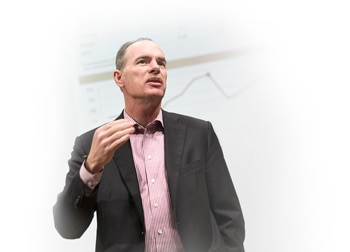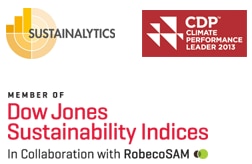|
Build partnerships and include stakeholder input in identifying sustainability priorities.
|
- Understand expectations and respond to different stakeholder and market concerns.
- Integrate into company decision-making processes.
|
- Continuous dialog with investors, Focus areas: Reducing the CO2 footprint along the value chain, human rights and freedom of association.
- Conducted issue-specific discussions with industry peers and partners through BSR, Swedish Network for Business and Human Rights, International Council of Swedish Industry, UNICEF’s Corporate Network for Children´s Rights.
- Hosted events on topics that include grievance mechanisms, whistle blowing and conflict minerals.
- Dialog with major customers on processes for Code of Conduct compliance in supply chain.
|
- Continue stakeholder dialog and ensure outcomes are channeled to relevant business functions.
- Dialog within BSR, UNICEF’s Corporate Network for Children´s Rights and the Swedish Network for Business and Human Rights etc. will continue.
|
Raise awareness along the value chain on the carbon target.
Communicating with consumers, colleagues, partnering with business partners and dialog with policymakers. |
- Raise internal support and have an open discussion about challenges.
- Build strategic partnerships with suppliers, customers, business partners and NGOs to reduce CO2 along the value chain.
- Performance standards and legislation vary between countries. Electrolux strives to support their global harmonization.
|
- Validation of the carbon target with external experts.
- Hosted a CDP conference on carbon reporting attended by industry peers.
- Held supplier energy workshop for major OEM partners in Shenzhen, China.
- Participated in the development of smart-grid projects in Europe.
|
- Ongoing stakeholder dialog and communication campaigns world-wide.
- Launch internal communications platform on the target.
- Continued work with smart grids and encourage behavior change on energy use among consumers.
- Engagement with Royal Seaport urban development project in Stockholm, Sweden with installation of smart-grid-ready appliances.
|
|
Awareness raising on sustainability issues relevant to Electrolux business.
|
- To trigger widespread attention on shared societal challenges.
- Boost sales of green products.
|
- Held one-on-one discussions and training sessions with suppliers and customers on sustainability priorities.
- Participated in the High Level Group on Innovation Policy Management with the agenda to promote an EU Innovation Policy with strong focus on innovation for sustainability.
- In dialog with representatives of governments, policy-makers and inter-governmental organizations on issues relating to climate change, energy and resource efficiency, producer responsibility, product labeling and eco-design, phase-out of chemicals of concern.
- Joined the TransAtlantic Business Council (TABC)—an organization that promotes free trade between the US and Europe.
- Conducted presentations at international conferences on Circular Economy / Recycling.
|
- Streamline and align the Group’s public-policy efforts globally.
- Continue to work with EU policy-makers.
- Set up a global office to co-ordinate and manage chemicals legislation and use across the Group during 2014.
- Continue efforts to influence the public policy agenda through membership in industry organizations such as CECED, AHAM and the TABC.
|
|
Openness and transparency on restructuring process and other labor-related issues
|
- Conduct restructuring and labor management responsibly, transparently and in constructive dialog with unions, municipal authorities and potential investors.
|
- Established a dialog with international union representatives such as IndustriAll (IA) on maintaining high standards for labor in manufacturing.
- Reduced production and non-production staff, primarily in Europe and Canada.
- Restructuring. In dialog with unions, local authorities, the French government and a new potential investor in the Revin, France plant.
- Evaluated plans on long term sustainability for four factories in Italy,
|
- Continue dialog with union representatives on labor rights.
- Agreements for a social plan and new ownership In Revin, France.
- Downsizing or closures for factories in Mariestad, Sweden (2014), Satu Mare, Romania (2014), Orange, Australia (2015).
- Aid employees to find new jobs in Australia, Europe.
- Announcements of Italian plant evaluations.
- Increase staff and factory worker numbers in Charlotte, Memphis, US, over five-year period.
|




